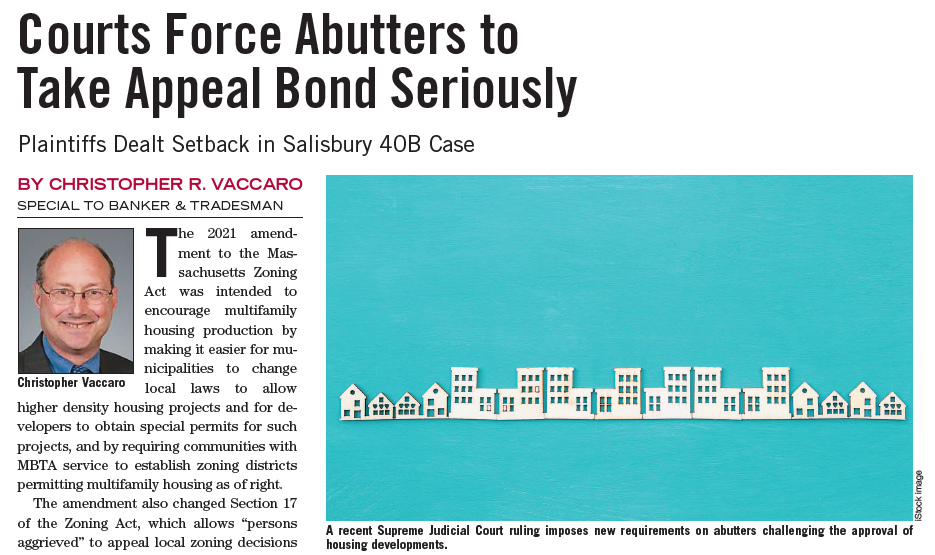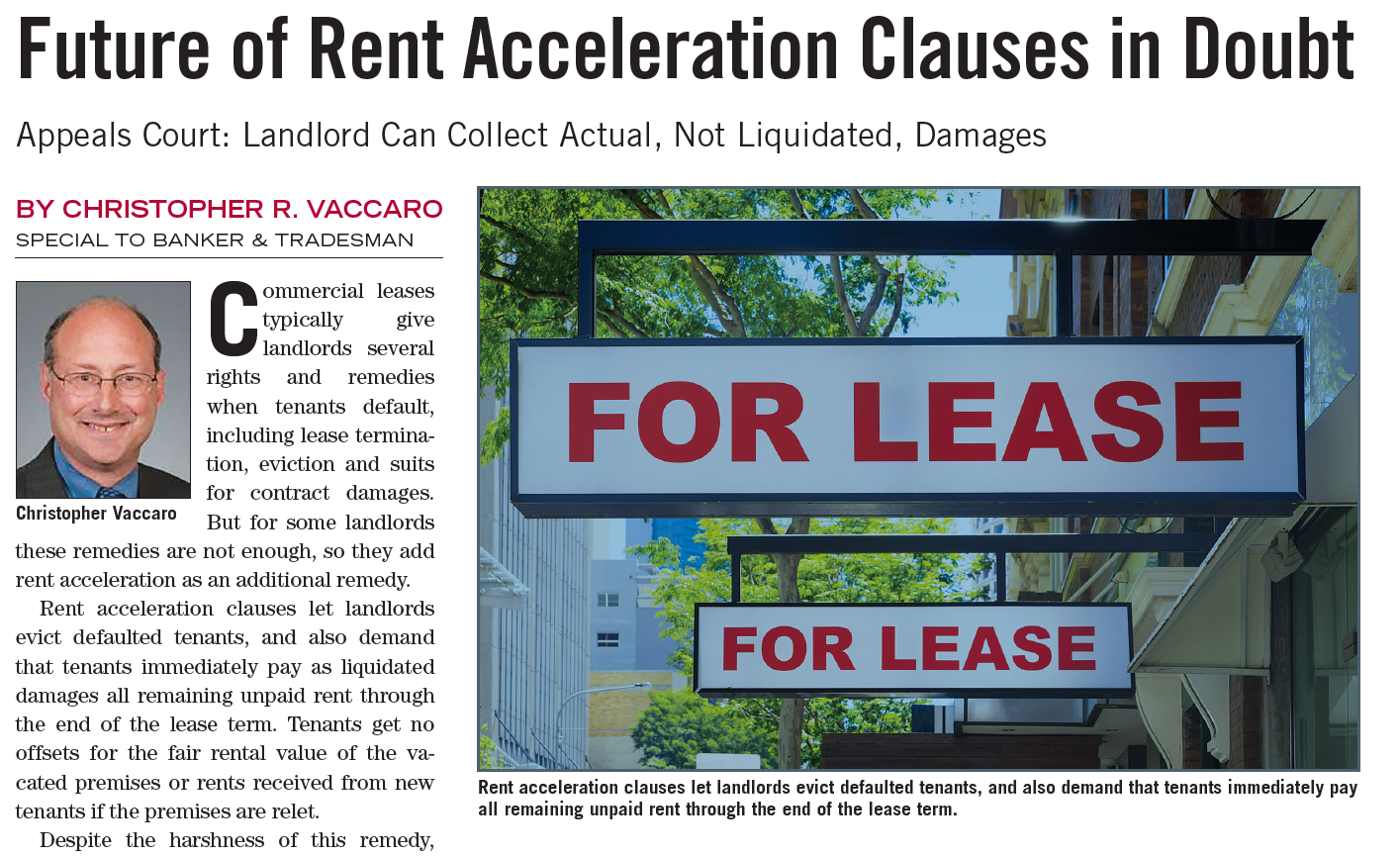 Plaintiffs Dealt Seatback in Salisbury 40B Case
Plaintiffs Dealt Seatback in Salisbury 40B Case
By Christopher R. Vaccaro
Special to Banker & Tradesman

The 2021 amendment to the Massachusetts Zoning Act was intended to encourage multifamily housing production by making it easier for municipalities to change local laws to allow higher density housing projects and for developers to obtain special permits for such projects, and by requiring communities with MBTA service to establish zoning districts permitting multifamily housing as of right.
The amendment also changed Section 17 of the Zoning Act, which allows “persons aggrieved” to appeal local zoning decisions in court. Such appeals often impose financial hardships on developers and prevent housing projects from going forward.
But now judges hearing appeals of special permits, variances and site plan approvals may require plaintiffs to post surety or cash bonds of up to $50,000 to secure payment of developer’s costs, when potential harm to developers or the public interest resulting from delays outweighs the financial burden of the bond on the plaintiffs. Recent decisions by the Supreme Judicial Court and the Superior Court in Marengi vs. 6 Forest Road LLC offer insight into how courts will apply this bonding requirement.
Abutters Challenged 40B Development
The developer in Marengi obtained a comprehensive permit under Chapter 40B from the Salisbury Board of Appeals for a 56-unit project with 14 affordable units in 2021. Abutters appealed to the Superior Court, arguing that the comprehensive permit should not have been issued because the developer lacked a valid purchase and sale agreement, there was no economic justification for the project, the town already exceeded the statutory minimum of 10 percent subsidized housing units under Chapter 40B and the Zoning Board failed to fully consider the project’s impacts.
The developer moved for a court order requiring the abutters to post a $50,000 bond to cover some of the developer’s estimated $250,000 in costs caused by the appeal, including increased construction costs, consultant fees, higher interest rates and attorney’s fees. The Superior Court judge ordered the abutters to post a $35,000 bond, without conducting a hearing. The abutters appealed, claiming that the bond requirement does not apply to appeals of comprehensive permits; that the bond order was improper because their appeal was not brought in bad faith or with malice; that the bond impermissibly included costs outside of the scope of the statute; and that the Superior Court judge abused his discretion. The SJC took up the appeal, and issued its decision last December.
Superior Court Gets the Last Word
The SJC noted that the bond requirement specifically applies to appeals of site plan approvals, which are a necessary component of applications for comprehensive permits. Therefore, the bond requirement can be imposed when abutters appeal comprehensive permits. However, the SJC noted that the Zoning Act only allows costs to be awarded against plaintiffs who “acted in bad faith and with malice in making the appeal.” The Superior Court cannot order a bond without a specific finding that the abutters’ appeal “appears so devoid of merit that it may be reasonably inferred to have been brought in bad faith.”
As to what costs are properly covered by the bond, the SJC found a middle ground between the developer’s argument that the bond should cover all of its costs caused by the appeal, including expert fees, attorney’s fees, carrying costs and delay damages, and the abutters’ argument that the bond should only cover “taxable costs” such as filing fees, travel costs and nominal witness fees.
The SJC ruled that the bond could cover expert fees, but not attorney’s fees, carrying costs, and other delay damages. Because the Superior Court’s order lacked specific findings of bad faith or malice by abutters and discussion of what costs can be covered by the bond, the SJC was unable to determine if the Superior Court judge properly exercised his discretion. The SJC vacated the bond order and remanded the case to the Superior Court.
Last month the Superior Court got the final word on this, issuing a harsh decision against the abutters. The court ruled that the abutters’ arguments against the comprehensive permit were so devoid of merit that they could be reasonably inferred to have been brought in bad faith. The court issued a new order, reinstating the $35,000 bond requirement. The abutters accepted a dismissal of their appeal.
Marengi vs. 6 Forest Road LLC shows that Massachusetts courts are mindful of the purposes behind the recent amendment to the Zoning Act, and they are prepared to require hostile abutters to put up serious money if, without good reason, they challenge zoning relief granted to housing developers.
Download the article as seen in Banker & Tradesman on March 27, 2023. Learn more about Christopher R. Vaccaro.













